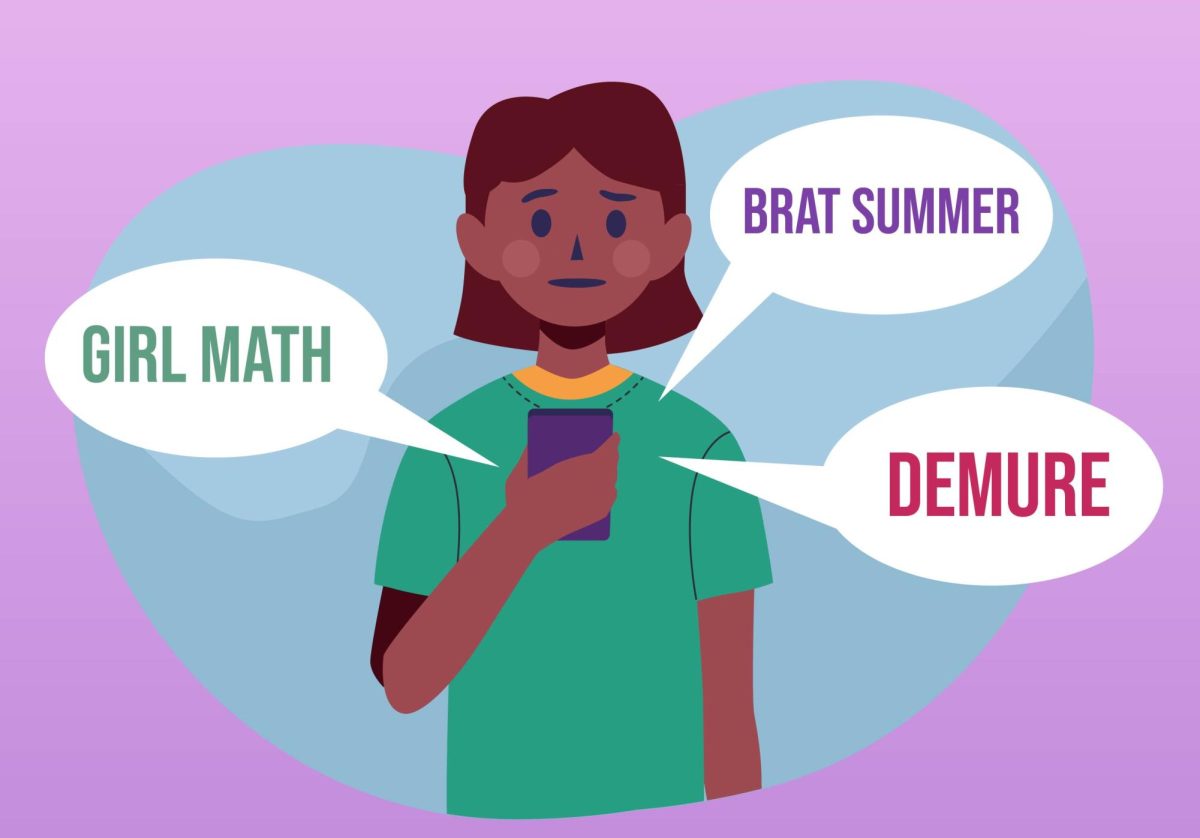This past month, content creator Jools Lebron went viral for her TikTok explaining her work-appropriate hair and makeup, describing her appearance as “very demure and very mindful.” The words “demure” and “mindful” quickly took off, and many viewers began making their own videos using these words as descriptors for different self-aware and modest actions.
These words followed the trend of other self-descriptors that went viral this summer, but almost in a contrasting way.
Earlier in the summer, singer-songwriter Charli XCX released a studio album entitled “BRAT,” popularizing the term “brat” to mean an effortless it-girl quality or general unapologeticness.
For anyone still lost, I will break it down. Holding the door for multiple classmates after our lecture finishes? Very demure and very mindful. Walking straight through as someone else holds the door for me? That is brat.
As an avid TikTok consumer, these words were quickly added to my vocabulary along with the slew of other TikTok-popularized phrases I use as a woman to self-identify. Some of my most used examples of these are “girl math,” “girl dinner” and being “just a girl.”
Again, let me provide context for these terms. “Girl math” is a playful way I justify my poor financial choices as a girl — i.e. buying coffee for no reason multiple times a week. I use “girl dinner” to describe a meal I have hastily thrown together, usually a combination of different small snacks. I say I am “just a girl” when something is ridiculously overwhelming to me.
Since these terms have infiltrated many young people’s everyday vocabulary, I have started to see some questions raised about the potential reductiveness of these terms. Through this, I started to have some of my own internal battles.
Is labeling myself as just demure or brat restricting? Does “girl math” perpetuate the stereotype that women are bad at math? Does “girl dinner” imply that women should only be light eaters? Does calling myself “just a girl” insinuate that girls cannot handle certain things?
Does using these words make me a bad feminist?
Heidi Johnson, a second-year University of Minnesota student, said she often uses some of these social media buzzwords as a fun way to justify day-to-day purchases.
“When I bought my drink today, I already had money on my app, so it was basically free,” Johnson said. “That’s girl math.”
For Johnson, she does not see using these words as making a statement about her value or intelligence as a girl, it is just something fun. Feminism is not even a thought.
“It’s mostly something I just say when I’m joking around with my friends,” Johnson said. “It doesn’t mean much. It’s really not that deep.”
Emerson Elle, a third-year student, said, the terms are far from offensive.
“I don’t see it as derogatory at all,” Elle said. “It’s more of a self-aware thing, like making fun of yourself.”
For Ellery Bazley, a third-year student, the “girl” part of it is interchangeable. The terms are more relevant to a certain age, rather than gender.
“I feel like I hear boys using the words too, like ‘boy math’ or ‘I’m just a boy,’” Bazely said. “It’s more about joking about being young and not quite an adult yet rather than about being a girl.”
So to answer my initial question, no. I do not think my usage of these words is anti-feminist. On one hand, as Johnson said earlier, it is not that deep. But to unpack it further, my self-identification through these words is also empowering. And as Elle stated, it is really about self-awareness.
When I call myself “demure” or “brat,” I am aware that I am a multi-faceted person beyond those two monikers. It is not reductive when I use the term “girl math,” because I am more than aware that women and girls are just as good at math, and as a woman, I am actually great at math. When I label a meal I just threw together as “girl dinner,” I am not implying that women should strictly be light eaters, because, again, as a woman, I typically eat a lot.
I do not see using these phrases as giving power to stereotypes about women. I use these phrases in a light-hearted way to take that power back.
Implying that saying the label of “girl” is demeaning suggests that being a girl is not sufficient. I hold several identities, but girlhood might be my favorite. I am just a girl, and being just a girl is more than enough.














